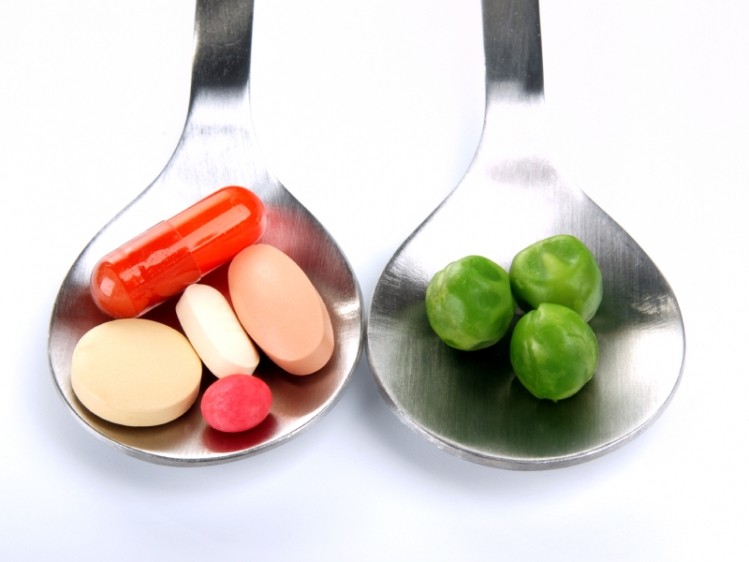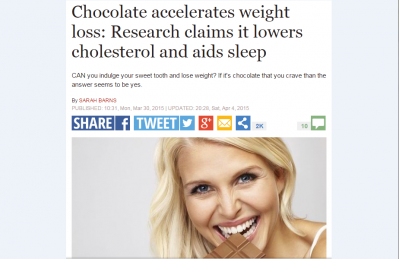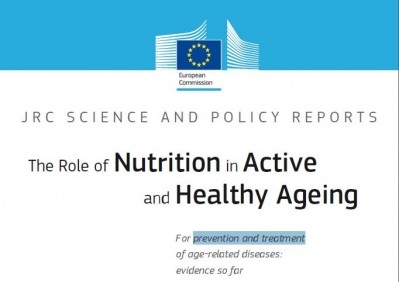Bonkers: The medical world's nutrition blinkers (and the damage done)

While malnutrition and under nutrition are very different problems in the developed compared to the developing world, I wonder what micronutrient-focused NGOs like the Global Alliance for Improved Nutrition (GAIN) and Scaling Up Nutrition (SUN) would make of these findings published in the Annals of Internal Medicine.
It’s pretty damning stuff that has been gleefully picked up by the world’s mainstream press. Supplements don’t cure or prevent diseases. They can be dangerous. They are a waste of money. Mass population nutrient deficiencies are a myth.
Essentially: Population wellbeing = ‘Normal foods’ + drugs when the foods don’t work. Supplements don’t feature in this equation. It’s bonkers.
I yawn because we have been here before – here being the same place, the same space, the same impasse, (the same disgrace?) – that represents the fundamental disconnect that all too frequently characterises the uneasy relationship of the medical and nutrition fraternities. Two fraternities whose core objective is almost exactly the same – better health.
Framed?
But hang on conspiracy theorists – I don’t share your view that ACP and others in the medical world are taking these positions because the pharmaceutical industry needs maximum numbers of unwell people to continue filling its coffers. There is no denying the effectiveness of some drugs to prevent and treat some diseases. The drug industry is lucrative and powerful for this reason; for its ability to treat disease. But actively slating methods like vitamin consumption to keep populations ill? It may be less nefarious than that even if the result is similar...
That aside, the drugs-disease model is on the other side of this particular fence which is fair enough. The problem is that those on that side of the fence won’t take a look over the other side to see what is really there, or even walk through the gate and have a good look around. These doctors, these medical intervention experts, seem unable to take off the med-goggles for a second to see what nutritional interventions really are. It's a conditioning thing - like trying to teach a shark to work with rather than attack and kill porpoises and seal pups.
Vitamins don’t treat disease – so why frame research and interpretation of that research as if they should? Like many fractious relationships, there are misconceptions aplenty, and in this case there is no more fundamental one than that.
An example of this from the ever-so-subtly titled ACP editorial, ‘Enough is enough: Stop wasting money on vitamin and mineral supplements’: “After reviewing 3 trials of multivitamin supplements and 24 trials of single or paired vitamins that randomly assigned more than 400,000 participants, the authors concluded that there was no clear evidence of a beneficial effect of supplements on all-cause mortality, cardiovascular disease, or cancer.”
When your endpoints are unrealistic and vitamin and mineral status pre-intervention is not measured or accounted for, then these results are a given. Cue industry hands-in-the-air exasperation…"but we’re not about that…!” Come on ACP – you can do better than that.
Relevant research and findings
EU deficiency snapshot
The EU-funded EURRECA project found inadequate intakes for vitamin C, vitamin D, folic acid, calcium, selenium and iodine. A recent comparison of national surveys showed widespread concern about vitamin D intakes, whereas certain age groups are more likely to have low intakes of minerals.
For example there is concern about adequate intakes of iron among teenage girls in Denmark, France, Poland, Germany and the UK.
Look to countless other pieces of research to see where nutrient deficiencies are quantified at baseline and rectified via supplement interventions. Whether it’s vitamin A for children in poverty to improve their chances of avoiding blindness or stunting; or omega-3 to boost cognitive or heart health in 'normal' adults, the evidence is strong.
So strong it has won backing from uber-strict agencies like the European Food Safety Authority (EFSA) – an agency itself widely scorned for a medicinal approach that has questioned reams of peer-reviewed nutrition science. So it is some validation that the agency has backed vitamins and minerals as it has.
It should be remembered that the responsible supplements industry does not say supplements should replace food – it is a more a pragmatic realisation that for various and complex reasons, at this point in time, normal foods simply do not cut the nutritional mustard for a great number of people and food supplements can help. Kinda simple really…
ACP’s analysis misses this point and should therefore be discounted as the irrelevant piece of work it is. If only it hadn’t gone and garnered so much skewed attention…
Shane Starling is the senior editor of NutraIngredients, FoodNavigator-Asia, FoodNavigator and other William Reed Business Media titles. He has been writing about the global nutrition sector since 2001.
















